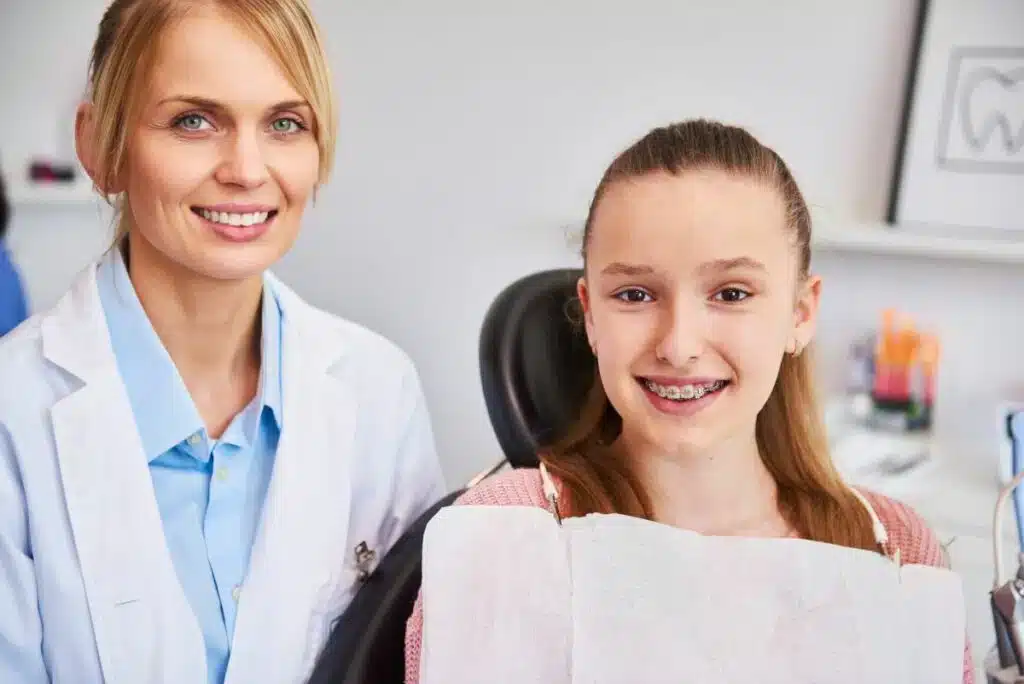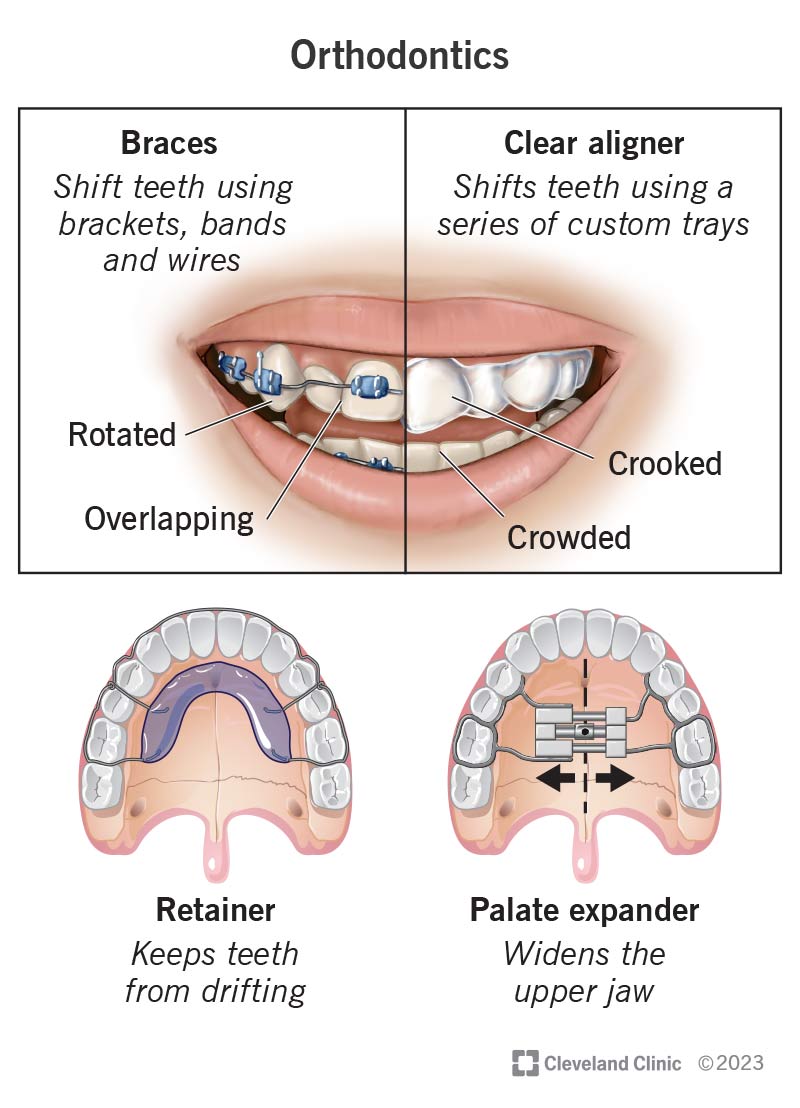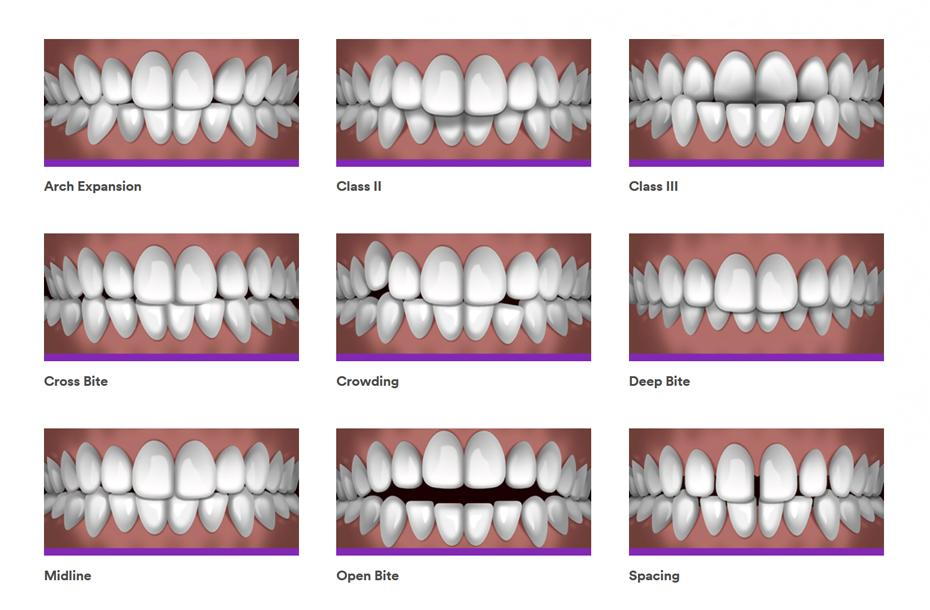Some Ideas on Causey Orthodontics You Need To Know
Some Ideas on Causey Orthodontics You Need To Know
Blog Article
An Unbiased View of Causey Orthodontics
Table of ContentsIndicators on Causey Orthodontics You Should KnowThe 10-Minute Rule for Causey OrthodonticsCausey Orthodontics Can Be Fun For EveryoneHow Causey Orthodontics can Save You Time, Stress, and Money.The Ultimate Guide To Causey OrthodonticsSome Known Details About Causey Orthodontics The 6-Minute Rule for Causey Orthodontics
What is the distinction in between a dental practitioner and an orthodontist? To answer an inquiry that is frequently asked, both dental professionals and orthodontists help clients get far better oral health and wellness, albeit in different means. It assists to bear in mind that dental care is an instead wide science with various clinical field of expertises. All dental experts, including orthodontists, deal with the teeth, gums, jaw and nerves.
Orthodontists and dental professionals both supply dental care for clients. Orthodontists can operate in an oral workplace and use the exact same therapies as various other dentists. You can think of both doctors that deal with gum tissue and teeth problems. The major distinction is that coming to be an orthodontist needs a certain specialized in dealing with the misalignment of the teeth and jaw.
Causey Orthodontics - Questions
An orthodontist is a dentist that has undergone training to specialize in the diagnosis, avoidance and therapy of abnormalities in the jaw and teeth. Their training consists of dealing with these existing problems. They can likewise recognize potential problems in teeth placement that might develop when conditions are left neglected. Orthodontists can help individuals of any ages.
This consists of all the required education and learning to end up being a basic dental professional. According to the American Pupil Dental Association (ASDA), it indicates you will certainly require to have either a Medical professional of Medication in Dentistry (DMD) or a Physician of Oral Surgical Procedure (DDS). Simply put, orthodontists need to complete oral school and afterwards acquire an orthodontics specialized education and learning.
Some orthodontists also obtain their masters in craniofacial biology. emergency orthodontist near me (https://www.codecademy.com/profiles/causeyortho7). Numerous dental colleges provide minimal orthopedic training and direction, which is why general dental practitioners need to visit orthodontic college after graduation. Orthodontic residency programs provide extensive training for this kind of oral field of expertise. These programs concentrate on two certain areas or self-controls: Dentofacial Orthopedics: This study concentrates on leading teeth and jaw advancement.
The Definitive Guide to Causey Orthodontics

 These consist of apparatus such as braces, retainers and Invisalign. What does an orthodontist do, and what do they concentrate on? The total objective of an orthodontist is to enhance an individual's bite. Not every person is born with straight teeth, and an orthodontist will guarantee that clients obtain uniformly spaced straight teeth.
These consist of apparatus such as braces, retainers and Invisalign. What does an orthodontist do, and what do they concentrate on? The total objective of an orthodontist is to enhance an individual's bite. Not every person is born with straight teeth, and an orthodontist will guarantee that clients obtain uniformly spaced straight teeth.
What Does Causey Orthodontics Mean?
The American Association of Orthodontists recommends your first check up by age 7. You'll need to see your orthodontist if you have a misalignment in your teeth, also referred to as malocclusion. If you notice uneven bite patterns, a slightly twisted jaw, or when your teeth are jammed, you will likely need orthodontic treatment.
At Advanced Orthodontics, we provide individuals with a holistic treatment experience. Furthermore, we offer flexible therapy schedules, versatile settlement alternatives and a fun, satisfying experience. Telephone call ( 480) 357-4900 today to learn more and routine an appointment.
An orthodontist is a dental expert educated to detect, avoid, and treat teeth and jaw irregularities. They correct existing problems and are educated to determine problems that might develop in the future. Orthodontists collaborate with people of every ages, from kids to adults. Individuals typically link a perfect smile with great health.
The Facts About Causey Orthodontics Uncovered
Malocclusion, or misaligned teeth, can cause dental issues, consisting of dental caries, gum disease, and hard or painful eating. Not every person is born with straight teeth. If you have a negative bite or huge spaces in between your teeth, you might wish to consult a dental practitioner specializing in orthodontic care.
(Picture Credit Report: DigitalVision/Getty Images) Orthodontists use fixed and removable oral tools, like braces, retainers, and bands, to transform the placement of teeth in your mouth. Orthodontic treatment is for dental irregularities, including: Crooked teethBite issues, like an overbite or an underbiteCrowded teeth or teeth that are as well far apartJaw misalignmentThe objective of orthodontic therapy is to enhance your bite.
Our Causey Orthodontics PDFs

All orthodontists are dentists, however not all dental practitioners are orthodontists. Orthodontic residency programs use intensive, focused guideline for oral specialists. They focus on two locations: Exactly how to effectively and securely relocate teeth Exactly how to appropriately assist development in the teeth, jaw, and faceOnce an orthodontist has completed training, they have the option to become board certified.
Malocclusion leads to tooth congestion, a misshapen jaw, or uneven bite patterns. Malocclusion is normally treated with: Your orthodontist attaches metal, ceramic, or plastic square bonds to your teeth.
Causey Orthodontics Fundamentals Explained
If you have just minor malocclusion, you might be able to make use of clear dental braces, called aligners, as opposed to typical braces. Some people need a headwear to aid move teeth right into line with pressure from outside the mouth. After dental braces or aligners, you'll require to use a retainer. A retainer is a customized tool that maintains your teeth in position.
Report this page